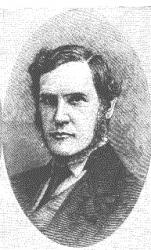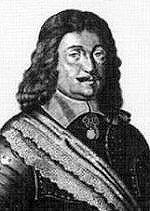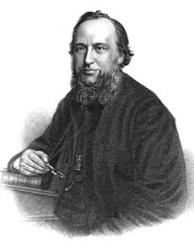Planning worship?
Check out our sister site, ZeteoSearch.org,
for 20+ additional resources related to your search.
- |
User Links
Person Results
J. H. Gilmore

1834 - 1918 Person Name: Rev. Joseph H. Gilmore Scripture: Psalm 43:3 Author of "He leadeth Me" in Songs of Praise with Tunes Joseph H. Gilmore (b. Boston, MA, 1834; d. Rochester, NY, 1918) Educated at Brown University, Providence, Rhode Island, and Newton Theological Seminary, Newton, Massachusetts, Gilmore was ordained to the Baptist ministry in 1862. He served churches in Fisherville, New Hampshire, and Rochester, New York. In 1868 he was appointed to the English faculty at the University of Rochester, where he served until retirement in 1911. He published various literary works, including Outlines of English and American Literature (1905).
Bert Polman
============
Gilmore, Joseph Henry, M. A., Professor of Logic in Rochester University, New York, was born at Boston, April 29, 1834, and graduated in Arts at Brown University, and in Theology at Newton Theological Institution. In the latter he was Professor of Hebrew in 1861-2. For some time he held a Baptist ministerial charge at Fisherville, New Hampshire, and at Rochester. He was appointed Professor at Rochester in 1868. His hymn, "He leadeth me, O blessed thought" (Ps. xxiii.), is somewhat widely known. It was written at the close of a lecture in the First Baptist Church, Philadelphia, and is dated 1859. It is in the Baptist Hymnal [and Tune] Book, Philadelphia, 1871. [Rev. F. M. Bird, M. A.]
-- John Julian, Dictionary of Hymnology (1907)
J. H. Gilmore
Charles H. Purday
1799 - 1885 Person Name: C. H. Purday Scripture: Psalm 43:3 Composer of "SANDON" in The Presbyterian Book of Praise Charles H. Purday (1799-1885) A publisher, composer, lecturer, and writer, Purday had a special interest in church music. He published Crown Court Psalmody (1854), Church and Home Metrical Psalter and Hymnal (1860), which included SANDON, and, with Frances Havergal, Songs of Peace and Joy (1879). A precentor in the Scottish Church in Crown Court, London, Purday sang at the coronation of Queen Victoria. In the publishing field he is known as a strong proponent of better copyright laws to protect the works of authors and publishers.
Bert Polman
Charles H. Purday
William Henry Gladstone

1840 - 1891 Person Name: William Henry Gladstone (1840-1891) Scripture: Psalm 43:3 Composer of "OMBERSLEY" in Church Hymnary (4th ed.) Born: June 3, 1840, Hawarden, Flintshire, Wales.
Died: July 4, 1892, Westminster, London, England.
Eldest son of British prime minister William Gladstone, William attended Eton College and read Greek and Latin at Christ Church College, Oxford University. A Member of Parliament for a total of 20 years, representing Chester for 3; Whitby, Yorkshire for 12; and East Worcestershire for 5. A singer and organist, he was well versed in musical history, especially the development of Anglican church music. He wrote on musical topics, and one of the views he expressed was that choral church services were to be deplored because "the choirs often discourage the congregations from singing." He wrote the anthems "Gracious and Righteous" and "Withdraw Not Thou", & chants, anthems, introits & organ voluntaries. His works include:
A Selection of Hymns and Tunes, 1882
--www.hymntime.com/tch/
William Henry Gladstone
Wilhelm II

1598 - 1662 Person Name: Wilhelm II. Herzog v. Sachsen-Weimar, 1598-1662 Scripture: Psalm 43:3 Author of "Herr Jesu Christ! dich zu uns wend" in Deutsches Gesangbuch für die Evangelisch-Luterische Kirche in den Vereinigten Staaten Wilhelm (II. or IV.), Duke of Sachse-Weimar, son of Duke Johann of Sachse-Weimar, was born in the castle of Altenburg, April 11, 1598. He studied for some time at the University of Jena, devoting himself especially to music and mathematics. On the outbreak of the Thirty Years War he espoused the cause of Friedrich V. of the Palatinate. At the battle of the Weisse Berg, near Prague, he was severely wounded, and at the battle fought near Stadtlohn, in Westphalia (Aug., 1623), he was at first left for dead, and then taken prisoner by Tilly. In 1625 the Emperor allowed him to go free, and he assumed the government of Weimar. When Gustavus Adolphus came to Germany (1630), Wilhelm did not join him till after the battle of Breitenfeld (Sept., 1631), and in July, 1635, he was one of the consenting parties to the Peace of Prague between Saxony and the Emperor, in consequence of which the Swedish troops made various inroads on his territory. When the final partition took place, in 1644, between himself and his surviving brother (Sachse-Weimar fell to Wilhelm, and Gotha to Ernst) he set himself earnestly to restore prosperity and godliness in the regions under his rule. He also found more time (especially after the peace of Westphalia, 1648), to devote to his studies in poetry and music, and to the adornment of Weimar. He died at Weimar, May 17, 1662 (Koch, iii. 110; Wetzel, iii. 426; Bode, p. 172, &c).
Wilhelm joined, in 1617, in founding the Fruitbearing Society, the great German Literary and Patriotic Union of the 17th century; and, after the death (1650) of Ludwig, Prince of Anhalt-Cöthen, became its head. Weimar thus became the centre of its operations, in the direction of which the Duke was assisted by Georg Neumark. Neumark, in his Palmbaum, 1680, p. 449, speaks of the Duke as having "composed several hymns, as well-known in this place, especially the short Hymn of Peace ‘Gott der Friede hat gegeben.'"
Besides this hymn on Peace only one other is known as Wilhelm's, viz.:—
Herr Jesu Christ, dich zu uns wend . Public Worship. This was included as No. 124 in the 2nd edition, 1651, of pt. i. of the Cantionale Sacrum, Gotha (1st ed. 1646), in 4 stanzas of 4 lines, entitled "To be sung before the Sermon." As no author's name is there given, and as it did not appear in any of the three parts of the original edition of 1646-48, the Duke's authorship is decidedly doubtful. So far as yet traced the Duke's name was not attached to it until in the Altdorf Liederfreud of 1676 (Fischer's Supplement, p. 71). In J. Niedling's Handbüchlein, 4th ed., 1655, p. 746, it appears without author's name (Niedling, be it observed, was living at Altenburg), and entitled "A heartfelt petition of pious Christians for grace and the help of the Holy Spirit, during Divine Service, before the Sermon." Koch says it was in the first edition, 1638, of Niedling, but this appears to be merely a guess, for the earliest edition of Niedling which he describes at iii., 109, is that of 1655; and if it were in Niedling's 1638 ed., this circumstance would make the Duke's authorship still more unlikely. Whoever the author was the hymn soon became justly popular, and in 1678 was formally directed to be sung in all the churches in Saxony on all Sundays and festivals. It is a simple and forcible hymn, which survived the Rationalistic period, and is found in all recent German hymn-books, e.g. in the Berlin Geistliche Lieder, ed. 1863, No. 356. Translated as:—
1. Lord Christ, reveal Thy holy Face. In full by J. C. Jacobi, in his Psalter Germanica, 1722, p. 42 (1732, p. 69). Repeated as No. 322 in pt. i. of the Moravian Hymn Book, 1754 (1886, No. 724), and as No. 54 in J. F. Thrupp's Psalms & Hymns, 1853.
2. Lord Jesu, to our prayer attend. This is a good and full translation by A. T. Russell, as No. 12 in his Psalms & Hymns, 1851.
3. Lord Jesus Christ, be present now! This is a good and full translation by Miss Winkworth, as No. 13 in her Chorale Book for England, 1863; repeated in the Pennsylvania Lutheran Church Book, 1868, No. 49.
4. Christ Jesus Lord, to us attend. In full by L. Heyl, as No. 3 in the Ohio Lutheran Hymnal, 1880.
Other translations are:—
(1) "Lord Jesus, turn to us, and down," by Dr. G. Walker, 1860, p. 48. (2) "Lord Jesus Christ, in mercy bend," by Miss Manington, 1863, p. 19. (3) "Lord Jesus Christ, now towards us bend," by N. L. Frothingham, 1870, p. 221. [Rev. James Mearns, M.A.]
-- John Julian, Dictionary of Hymnology (1907)
Wilhelm II
John Stainer

1840 - 1901 Person Name: John Staner (1840— ) Scripture: Psalm 43:3 Composer of "LAUS MATUTINA" in Songs of Praise with Tunes
John Stainer
William Merrell Vories
1880 - 1964 Person Name: William M. Vories Scripture: Psalm 43:3 Author of "Let There Be Light" in The Hymnal of The Evangelical United Brethren Church
William Merrell Vories
Anonymous
Person Name: Anon. Scripture: Psalm 43:3-4 Author of "Lord Jesus Christ, Be Present Now" in Trinity Psalter Hymnal In some hymnals, the editors noted that a hymn's author is unknown to them, and so this artificial "person" entry is used to reflect that fact. Obviously, the hymns attributed to "Author Unknown" "Unknown" or "Anonymous" could have been written by many people over a span of many centuries.
Anonymous
George Herbert

1593 - 1633 Person Name: George Herbert, 1593-1633 Scripture: Psalm 43:4 Author of "Come, my way, my truth, my life" in Common Praise Herbert, George, M.A., the fifth son of Richard Herbert and Magdalen, the daughter of Sir Richard Newport, was born at his father's seat, Montgomery Castle, April 3, 1593. He was educated at Westminster School, and at Trinity College, Cambridge, graduating B.A. in 1611. On March 15, 1615, he became Major Fellow of the College, M.A. the same year, and in 1619 Orator for the University. Favoured by James I., intimate with Lord Bacon, Bishop Andrewes, and other men of influence, and encouraged in other ways, his hopes of Court preferment were somewhat bright until they were dispelled by the deaths of the Duke of Richmond, the Marquis of Hamilton, and then of King James himself. Retiring into Kent, he formed the resolution of taking Holy Orders. He was appointed by the Bishop of Lincoln to the Prebend of Lcighton Ecclesia and to the living of Leighton Bromswold, Hunts, July 15, 1626. He remained until 1629, when an attack of ague obliged him to remove to his brother's, house at Woodford, Essex. Not improving in health at Woodford, he removed to Dantsey, in Wiltshire, and then as Rector to Bemerton, to which he was inducted, April 26, 1630, where he died Feb. 1632. The entry in the register of Bemerton is "Mr. George Herbert, Esq., Parson of Foughleston and Bemerton, was buried 3 day of March 1632."
His life, by Izaak Walton, is well known; another Memoir, by Barnabas Oley, is forgotten. Herbert's prose work, Priest to the Temple, appeared several years after his death: but The Temple, by which he is best known, he delivered to Nicholas Ferrar (q.v.), about three weeks before his death, and authorized him to publish it if he thought fit. This was done iu 1633. The work became popular, and the 13th edition was issued in 1709. It is meditative rather than hymnic in character, and was never intended for use in public worship. In 1697 a selection from The Temple appeared under the title Select Hymns Taken out of Mr. Herbert's Temple & turned into the Common Metre To Be Sung In The Tunes Ordinarily us'd in Churches. London, Parkhurst, 1697. In 1739, J. & C. Wesley made a much more successful attempt to introduce his hymns into public worship by inserting over 40 in a much-altered form in their Hymns & Sacred Poems. As some few of these came into their collection of Psalms & Hymns, 1741, revised 1743, they were long sung by the Methodists, but do not now form part of the Wesleyan Hymn Book. No further attempt seems to have been made to use the Temple poems as hymns until 1853, when some altered and revised by G. Rawson were given in the Leeds Hymn Book of that year. From that time onward more attention was paid to Herbert alike by Churchmen and Nonconformists, and some of his hymns are now widely accepted. Many editions of his works have been published, the most popular being that of the Rev. Robert Aris Wilmott, Lond., Geo. Routledge & Son, 1857; but Dr. Grosart's privately printed edition issued in his Fuller Worthies Library in 1874, in three volumes, is not only the most complete and correct, but included also his psalms not before reprinted, and several poems from a ms. in the Williams Library, and not before published. The Temple has also been pub¬lished in facsimile by Elliott Stock, 1876, with preface by Dr. Grosart; and in ordinary type, 1882, by Wells Gardner, with preface by J. A. Shorthouse.
The quaintness of Herbert's lyrics and the peculiarity of several of their metres have been against their adoption for congregational purposes. The best known are: "Let all the world in every corner sing"; "My stock lies dead, and no increase"; "Throw away Thy rod"; "Sweet day, so cool, so calm"; and "Teach me, my God, and King." [William T. Brooke]
--John Julian, Dictionary of Hymnology (1907)
George Herbert
John Julian

1839 - 1913 Scripture: Psalm 43:3 Author of "O God of God, O Light of Light" in The Lutheran Hymnal Born: January 27, 1839, St. Agnes, Cornwall.
Died: January 22, 1913, Thirsk, Yorkshire, England.
Educated privately, Julian graduated from Durham University (MA 1887), Lambeth (DD 1894), and Howard University in Washington, DC (LLD 1894). He took Holy Orders in 1866, and served as Vicar of Wincobank (1876-1905) and Vicar of Topcliff, Yorkshire (1905-). However, he is best known as a hymnologist. The standard reference work in this field is his massive Dictionary of Hymnology: Origin and History of Christian Hymns and Hymnwriters of All Ages and Nations, Together with Biographical and Critical Notices of Their Authors and Translators. This work has been revised and reprinted several times; its publication dates include:
-- London: J. Murray, 1892
-- London: J. Murray, 1908 (this may be the edition revised by James Mearns (1855-1922), Vicar of Rushden, Hertfordshire)
--Grand Rapids, Michigan: Kregel Publications, 1985
His other works include:
Concerning Hymns, 1874
History of the Use of Hymns in Public Worship, and Their Proper Characteristics, 1894
Carols, Ancient and Modern, 1900
Julian donated his large collection of hymnological books and manuscripts to the Church House, Dean’s Yard, London, where it formed the hymnological department of the library.
www.hymntime.com/tch
John Julian
John Goss

1800 - 1880 Scripture: Psalm 43:3 Composer of "PETERBOROUGH" in The Hymnal and Order of Service John Goss (b. Fareham, Hampshire, England, 1800; d. London, England, 1880). As a boy Goss was a chorister at the Chapel Royal and later sang in the opera chorus of the Covent Garden Theater. He was a professor of music at the Royal Academy of Music (1827-1874) and organist of St. Paul Cathedral, London (1838-1872); in both positions he exerted significant influence on the reform of British cathedral music. Goss published Parochial Psalmody (1826) and Chants, Ancient and Modern (1841); he edited William Mercer's Church Psalter and Hymn Book (1854). With James Turle he published a two-volume collection of anthems and Anglican service music (1854).
Bert Polman
John Goss


 My Starred Hymns
My Starred Hymns


